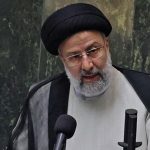On Tuesday, Pakistan urged the United States to go beyond the Afghan conflict and build a bilateral relationship anchored in trade, investment, and people-to-people contacts.
“We want to build a more broad-based and multidimensional relationship. We want to break out of the cyclical pattern that defined Pakistan-US ties in the past,” said Foreign Minister Makhdoom Shah Mahmood Qureshi at the Council on Foreign Relations (CFR), New York, where he underlined his vision of this bilateral relationship.
However, the minister needed to confront few questions on Afghanistan, with CFR President Ambassador Richard Haass voicing the concerns that often echoes in such social affairs across the US that the Taliban restored their power over Afghanistan, since “Pakistan provided them sanctuary for 20 years”.
The minister disagreed with the suggestion, stating that “Pakistan has done its bit” in clearing Taliban sanctuaries in the tribal belt, conducting operations even in the so-called no-go areas. “We cleansed them. We cleansed them,” he said. “We fenced the border despite… If you are concerned about sanctuaries, look into Afghanistan,” he added.
https://twitter.com/SMQureshiPTI/status/1440348751118290950
Ambassador Haass used the response to pose a counter-question: Could the Taliban now use Afghanistan to radicalize Pakistan?
“Depends on how you deal with Afghanistan today,” Mr. Qureshi replied urging the world powers not to isolate Kabul’s new rulers. “If the international community disengages if you do not deal with the immediate humanitarian crisis, if you let the Afghan economy collapse, if you continue freezing the Afghan money, then you will be creating space for those elements that we correctly agreed to fight and defeat,” he said.
FM Qureshi asked world powers to encourage progress towards a more inclusive and stable government in Afghanistan that would be more effective at denying space to terrorist groups.
In an earlier interaction with UN-based journalists, Mr. Qureshi, who is in New York to attend the 76th session of the United Nations General Assembly, said Pakistan was in no rush to recognize the Taliban government, emphasizing that the Taliban needed to understand that they must be more sensitive and receptive to international opinion and norms if they wanted recognition and assistance in rebuilding their war-battered country.
“I don’t think anybody is in a rush to recognize at this stage and the Taliban should keep an eye on that,” he said.








